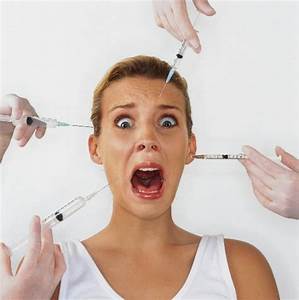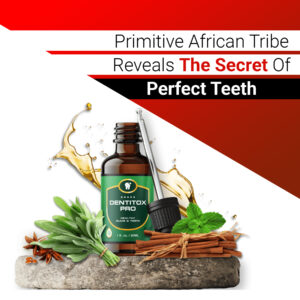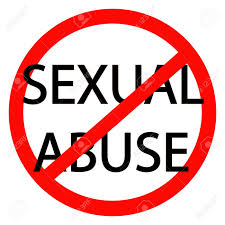Cosmetic Procedures – The ‘Zoom Effect’ – Why Cosmetic Procedures in the UK Are Surging
As lockdown looks set to lift, UK clinics are reporting an overwhelming spike in bookings for cosmetic enhancements.
In February, a friend of mine had a Zoom consultation about buccal fat removal. As she explained over FaceTime, buccal fat pads are found in your mid-cheek area, and having them surgically removed accentuates the contours of your cheekbones, sculpts the lower third of the face and leaves you looking thinner. “It’s what all the celebrities get,” she told me confidently, after three hours of unregulated Reddit research.
Following a gruelling winter lockdown, the UK is currently counting down to the 21st of June, when society will – we’ve been told – return to normal. Once vaccinated, we’ll leave the confines of our houses to socialise. Dance, date, have sex. But re-socialisation comes with a mental cost: fear of feeling overwhelmed in large crowds, grief about returning to life without loved ones, worries we won’t act normal on dates – and anxiety about our looks. After months locked away in our tracksuits, we want to reenter the world, but we also want to do that looking hot.
Botox, Fillers and ‘Instagram Face’ Are Disappearing During Lockdown
The UK’s £3.6 billion-a-year cosmetic surgery industry suffered temporarily during lockdown closures, but clinics look set to recoup those losses and then some. Since early 2020, requests for “tweakments” – non-surgical procedures such as Botox, filler and skin-peels – have skyrocketed. Customers have turned to online consultations – rather than in-person ones – and bookings have filled up months in advance in anticipation of doors reopening.
The rush might be partly down to a backlog, but doctors and cosmetic surgeons unanimously tell me that demand from both new and existing customers is higher than ever before. “There has been a huge rise in first-timers interested in injectable treatments,” says Dr Anjali Mahto, a Consultant Dermatologist at 55 Harley Street.
Dr Mahto thinks that some of this boom can be attributed to just how much time we’ve spent looking at ourselves on screens – Zoom, Facetime, WhatsApp video calls. Due to virtual meetings and more camera-facing time, “people have developed a heightened awareness of their perceived flaws, lines or wrinkles”, Dr Mahto explains. Her clients constantly reference how their faces look on video-conferencing apps and what they want to fix to make real-life match the filtered digital lens they’ve spent the past year analyzing.
The British Association of Aesthetic Plastic Surgeons (BAAPS) has dubbed the phenomenon the “Zoom Boom” or “Zoom Face” (the pandemic’s answer to “Instagram Face”). TikTok might be partly behind the trend, too, with its non-stop carousel of lockdown glow-ups – people with Gen Z-aged skin documenting their before-and-after quarantine transformations – adding to the pain for those of us who instead turned to wine, Deliveroo and the couch for comfort.
“I felt really gross after months stuck in my apartment, and anxious at the thought of seeing people again,” says Chloe*, a 31-year-old from London, who had a consultation for tear trough filler, before settling on having her first bout of Botox in her forehead and frown lines. “The idea of being able to do something to make myself feel – and look – young and fresh was very tempting – and it also worked,” she says. “It actually has made me feel better.”
A rhinoplasty was something Bryan, a 26-year-old who visited Regent Street Clinic in Nottingham, hadn’t seriously considered until lockdown, when he found himself “lacking in confidence” after so much camera-facing time. Rather than just physically making his nose straighter, the procedure had a profound impact on his overall wellbeing. “This was something that allowed me to feel less worried about how I appear, and more focused on regular things in life, like work, socialising and meeting new people,” he says.
There are a million-and-one reasons people might wish to change their appearance. But as we spend more time staring at our own faces and others’ through screens, it makes sense that we’d zoom in on our looks. “That many of us are coming out of lockdown with a wish to ‘fix’ ourselves by changing our bodies is part of a broader change, where beauty has become a dominant – for some, the most dominant – value framework,” says Heather Widdows, a British philosopher and author of Perfect Me, a 2018 study of contemporary beauty norms.
All of the above has meant that not everyone who wants cosmetic enhancements is being granted them. “One in five people attending Regent Street Clinic at the moment are being rejected for treatment, having been identified as unsuitable, mostly due to concerns we have about their mental health,” says Dr Ahmed.
Some clinics are referring wannabe patients to therapists and psychologists instead. “Our job is to make sure we get to the root of the cause and address the underlying issues at play,” says Dr Sheri Jacobson, Clinical Director at Harley Therapy.
As for my friend, she’s decided her brief exploration into spending £3,000 on plastic surgery to look more like an A-lister was mostly due to a pandemic-induced Reddit rabbit hole than anything else. For plenty of others, though, over the next few months, lockdown definitely won’t be the only thing that ends up being lifted.










